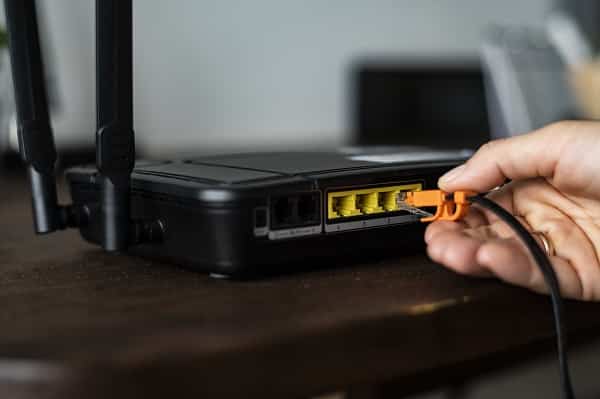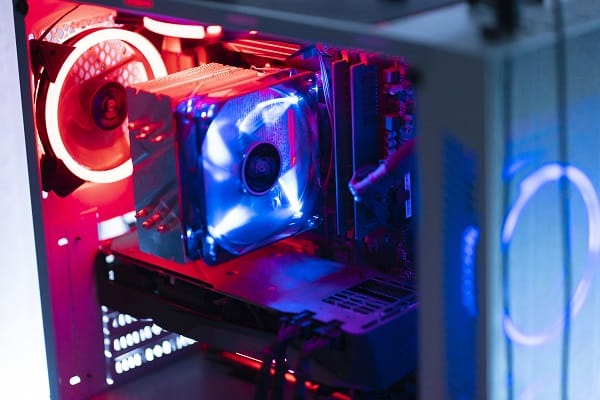Gaming, particularly on PCs, is an experience that calls for performance optimization to maximize enjoyment. This article provides a comprehensive guide for PC gamers seeking to elevate their gaming experiences. Whether a casual player or a hardcore enthusiast, understanding and implementing the performance tips discussed in this post can dramatically improve your gaming experiences. Optimizing your PC’s hardware and software, adjusting in-game settings, utilizing gaming tools, and maintaining internet connectivity will be highlighted. Furthermore, you will delve into the often-overlooked aspect of gaming: maintaining good health practices.
Contents
Understand Your System’s Capabilities

The first step to optimizing your PC gaming experience is understanding your system’s capabilities. You should familiarize yourself with your PC’s specifications, including CPU, GPU, RAM, and storage, as they all play a pivotal role in determining how well your system can handle games. For instance, a high-end CPU (Central Processing Unit) can process game data more efficiently, leading to smoother gameplay. Similarly, a powerful GPU (Graphics Processing Unit) can render high-quality visuals without lag or stuttering.
Moreover, the amount of RAM and type of storage can affect the speed at which games load and run. More RAM allows more data to be stored temporarily for quick access, speeding up game performance. Solid State Drives (SSDs), compared to traditional Hard Disk Drives (HDDs), provide faster data retrieval, reducing game load times. Therefore, understanding these specifications and the system requirements of the games you wish to play is essential for an optimal gaming experience.
Optimizing Your PC’s Hardware

Once the system’s capabilities are known, optimizing your PC’s hardware is the next step in leveling up your gaming experience. Investing in hardware upgrades like a more powerful GPU, extra RAM, or switching to an SSD can yield substantial improvements for gamers aiming for high-end performance. However, considering the system requirements of the games you play most frequently, it’s worth noting that such upgrades should be made.
Maintaining your hardware is as crucial as upgrading it. Regular PC cleaning can prevent dust build-up, leading to overheating, a common cause of performance issues. Furthermore, implementing proper cooling solutions can further aid in maintaining optimal operating temperatures for your hardware, consequently leading to smoother gaming experiences. Good cooling solutions can range from using adequate case fans to employing more advanced methods like liquid cooling systems.
Optimizing Your PC’s Software

Ensuring that your drivers are up to date is crucial on the software front. Drivers act as the intermediary between your system’s hardware and software. Updated drivers can help your system utilize its hardware to the fullest extent, potentially leading to noticeable improvements in gaming performance. Graphics drivers, in particular, are frequently updated to optimize performance for newly released games. Thus, regular checks for driver updates can be beneficial.
Similarly, keeping your operating system updated can improve overall system performance, indirectly affecting gaming performance. Updates often bring performance improvements, bug fixes, and new features that can enhance your gaming experience. Additionally, closing unnecessary background applications while gaming can free up system resources, providing a more stable environment for your game. This simple action can help prevent game crashes or slowdowns caused by resource contention.
In-Game Settings Optimization

Diving into the settings menu of your favorite game is another surefire way to boost performance. Every game offers a variety of graphics settings to adjust, such as texture quality, shadow quality, resolution, and frame rate limit. Learning what each setting does and how it impacts performance can allow you to fine-tune your gaming experience. For instance, decreasing shadow quality or lowering resolution can result in a significant boost in frame rate.
However, adjusting in-game settings is often a balancing act between aesthetic quality and performance. While you may enjoy the immersive experience of ultra-high graphics settings, your system may not be capable of maintaining a smooth frame rate at these settings. Therefore, understanding your system’s capabilities and adjusting settings accordingly is key to achieving an optimal gaming experience.
Gaming Tools and Applications

The digital world offers many tools and applications designed to augment gaming performance. Overclocking tools, for instance, allow you to push your GPU and CPU beyond their base clock rates, extracting extra performance. These tools, such as MSI Afterburner for GPUs or Intel XTU for CPUs, can be potent but should be used cautiously, as excessive overclocking can damage the hardware.
On the software side, Windows 10 and onward include a dedicated ‘Game Mode’ which, when enabled, prioritizes system resources towards the game you’re playing. Additionally, various game boosters are available that can optimize system performance and network speed for gaming. However, it’s crucial to research and choose trustworthy applications as some may be intrusive or carry security risks.
Internet Connectivity and Online Gaming

A stable internet connection in online gaming is just as important as hardware performance. Games require constant communication with servers, and a laggy or unstable connection can seriously hamper your online gaming experience. Therefore, a reliable, high-speed internet connection can drastically improve your gaming performance.
Understanding the impact of ping and latency is crucial for online gamers. High ping or latency can cause noticeable lag in-game response times, providing a frustrating gaming experience. Various solutions can help reduce these, including using wired Wi-Fi connections, gaming VPNs, or even selecting game servers closer to your physical location.
Health Tips for Gamers

Although often overlooked, health plays a significant role in gaming performance. Spending long hours gaming without breaks can lead to physical discomfort and reduced mental acuity. Therefore, taking regular breaks to stretch, rest your eyes, and hydrate is crucial to maintaining gaming performance.
Ergonomics also plays a pivotal role. A comfortable gaming chair and well-positioned peripherals can prevent strains and injuries over time. Maintaining a balanced diet and regular exercise can improve concentration and stamina, enhancing your gaming experience.
The Bottom Line
In conclusion, leveling up your PC gaming performance isn’t simply about having the most powerful hardware; it’s about understanding your system’s capabilities, optimizing hardware and software, making informed adjustments to in-game settings, using the right gaming tools, and maintaining a stable internet connection. Moreover, it’s crucial not to neglect the physical well-being aspect of gaming. Regular breaks, proper ergonomics, and healthy living can contribute significantly to a better and more sustainable gaming experience. Remember, continual learning and staying updated with the latest trends and advancements in PC gaming can unlock new performance levels. So, put these tips into practice and experience the difference!

